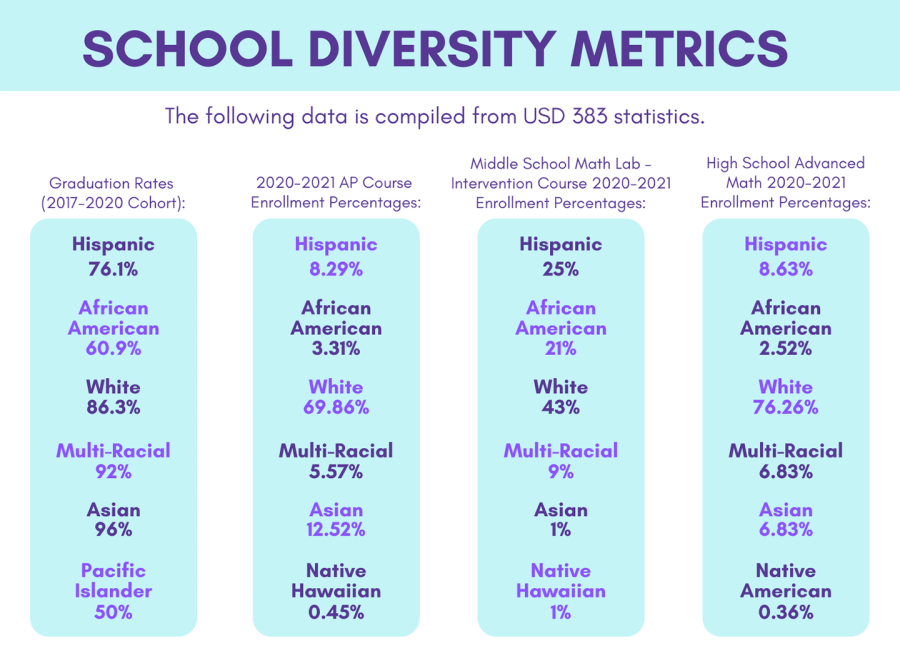School discipline records show discrepancies for minority students
January 31, 2022
Issues of systematic racism in schools manifest themselves in innumerable areas of the education system, from grading discrepancies to staff diversity, and one of the most pertinent problems for non-white students is disparities in disipline. On a national level, according to the Civil Rights Data Collection, African American children specifically are punished more often and experience more severe punishments for similar offenses than their peers, and USD 383 sees a similar trend locally.
“Overrepresentation [in discipline] right now is our African American population,” Director of Teaching and Learning Paula Hough said. “We are seeing a… higher ratio of our African American students with classroom removals compared to our Hispanic population, white or Caucasian population.”
The district tracks disciplinary records through Infinite Campus and breaks down data by race, ethnicity, gender and special education at the elementary and secondary level. Elementary schools record offenses differently and secondary schools track everything from tardies to referrals.
The overrepresentation of African American students is a cause for concern, because it could be a sign of bias from educators. Subconciously bias educators have the potential to remove non-white students from the classroom for offenses their peers may not have been, and therefore impact their educational experience.
“Looking at our graduation rates we definitely do have a lower percentage of African American students that are graduating… And looking at advanced placement and [Career and Technical Education Courses] courses, there are lower numbers of students that are African American, enrolled in those programs,” Hough said. “I can’t say that that’s a direct connection [to discipline] but there has to be some overlay between the two of them.”
Disciplinary action that has the most clear connection to students’ futures is interaction with law enforcement through the school. This creates what is known as the school-to-prison-pipeline, as an already established criminal record, even if it is juvenile, can impact the likelihood of interaction with law enforcement as an adult, with more serious consequences. However, USD 383 claims they do not have an issue with in-school arrests like many other districts; the numbers are so low the school does not track them. However, USD 383 claims School Resource Officers take roles closer to that of social workers than regular police.
“If you look at the news anywhere there’s such a stigma,” Hough said. “We need to work very, very hard as a community to show our students and our families that [law enforcement] are resources, that they are support…. The things that happen in… any neighborhood come into school, so if we do have law enforcement, that enables us to help make those connections and build that support.”


